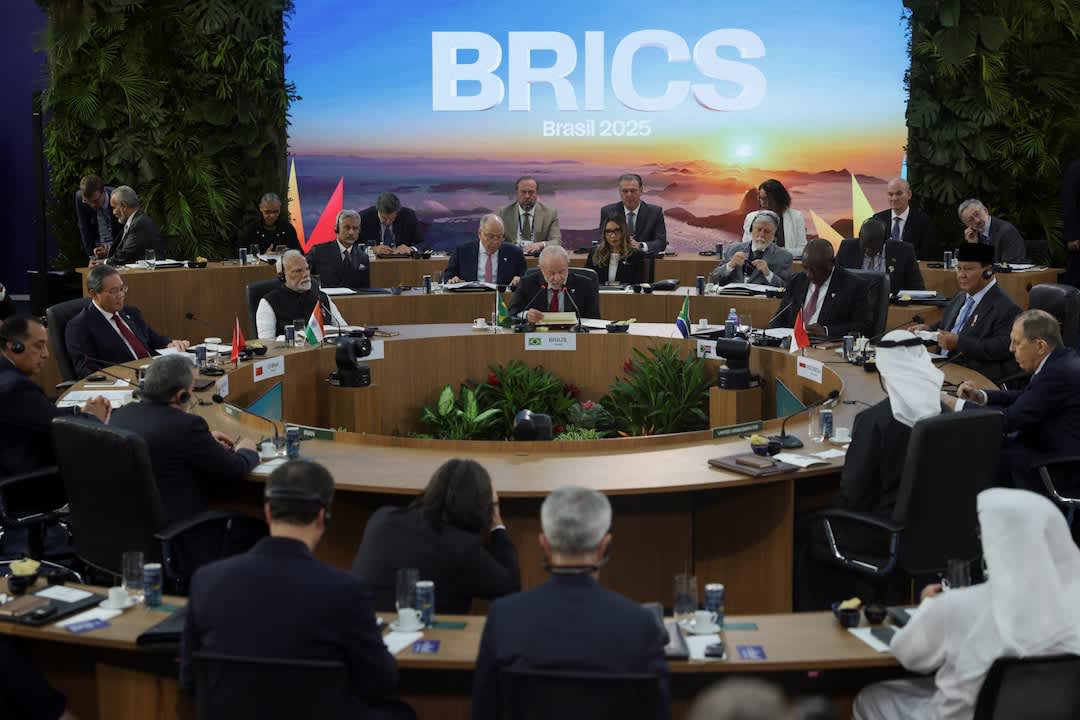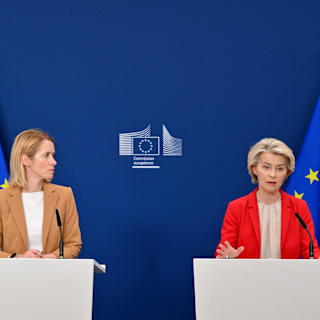- Trump Fires Back With New Tariff Threats
- Iran Wins Diplomatic Victory on Strikes
- Global Pushback Intensifies
Leaders of the BRICS bloc issued a sharp rebuke of US trade policy and military strikes against Iran at their summit in Rio de Janeiro on Sunday, setting up a fresh confrontation with President Donald Trump just as his new tariff deadlines approach. The 11-nation group condemned what it called "indiscriminate" tariffs and declared recent attacks on Iranian facilities a violation of international law, though it stopped short of naming the United States directly in either case.
The declaration represents a coordinated challenge to American foreign policy from countries representing about half the world's population and 40 percent of global economic output, as Trump prepares to impose fresh duties on July 9 unless trading partners reach agreements by his August 1 deadline.

Trump responded within hours of the summit's conclusion with a post on Truth Social threatening additional penalties. "Any Country aligning themselves with the Anti-American policies of BRICS, will be charged an ADDITIONAL 10% Tariff. There will be no exceptions to this policy," he wrote12. The president did not specify which policies he considered anti-American.
The BRICS leaders voiced "serious concerns about the rise of unilateral tariff and non-tariff measures," warning that such actions are illegal and threaten global economic development34. According to AFP, they described the measures as "inconsistent with WTO" rules5. The Peterson Institute for International Economics estimates Trump's tariffs could trim about two points off US GDP4.
The bloc also condemned military strikes against Iran since June 13, 2025, calling them "a violation of international law"12. According to Arab News, the strikes followed a 12-day Israeli bombing campaign that culminated in US attacks on Iran's nuclear facilities at Natanz, Fordow and Isfahan1.
"We further express serious concern over deliberate attacks on civilian infrastructure and peaceful nuclear facilities," the leaders stated34. The declaration marked a diplomatic win for Tehran, which had received limited global support following the strikes, according to Arab News1.
Brazilian President Luiz Inácio Lula da Silva, hosting the summit, criticized what he called "the collapse of multilateralism"5. The absence of Chinese President Xi Jinping and Russian President Vladimir Putin, who participated by video, underscored internal tensions within the expanding bloc6.
The summit's carefully worded condemnations reflected what analysts described as Brazil's reluctance to provoke Washington. "Brazil wants the least amount of damage possible," Ana Garcia, a professor at Rio de Janeiro Federal Rural University, told the Associated Press6.
The BRICS Rio Declaration delivered a pointed critique of US economic policies without explicitly naming the United States. The bloc expressed "grave concern about the rise in unilateral tariff and non-tariff measures that distort trade flows"1 and warned such restrictions could "reduce global trade, disrupt global supply chains, and introduce uncertainty" into the international economic order2. This rare moment of unity among the diverse bloc members underscores growing resistance to what they perceive as American economic unilateralism.
The rebuke extends beyond trade policy to broader geopolitical issues, with BRICS condemning Israeli-US strikes on Iran and advocating for reforms to global institutions like the UN Security Council and IMF34. Brazilian President Lula da Silva framed BRICS as the successor to the Cold War-era Non-Aligned Movement, positioning the expanded 11-nation group—now representing over half the global population and 40% of global output—as a counterweight to US hegemony3. The bloc's discussions about increasing non-dollar transactions between member states56 further signals its intention to challenge American economic dominance, though officials have denied plans to create a unified BRICS currency5.

